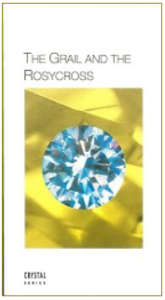ORDER THE GRAIL AND THE ROSYCROSS AT ROZEKRUISPERS.COM
ORDER THE GRAIL AND THE ROSYCROSS AT AMAZON.COM
READ ABOUT THE SYMPOSIUM IN FRANCE IN SEPTEMBER 2021
Great teachers of wisdom like Hermes, the Buddha, Zarathustra, or Jesus periodically constructed a spiritual bridge between the perfect and the imperfect world. In many legends, this in fact impossible, temporary link between eternity and time is referred to as the Grail, the chalice, or the divine mixing vessel: a protected field of life where seeking souls that have overcome all earthly resistance can find their way to eternity. In this book from the Crystal Series, the reader not only finds the legends of the West about Parcival and the Knights of the Grail of King Arthur’s Round Table, but also for instance the Persian legends of Kay Chosrou and the Chalice of Yamshid ‘that reflects the Universe,’ or the medieval Russian legend of Vsevolod, who became Grail King of the invisible city of Kitesj. Continue reading

